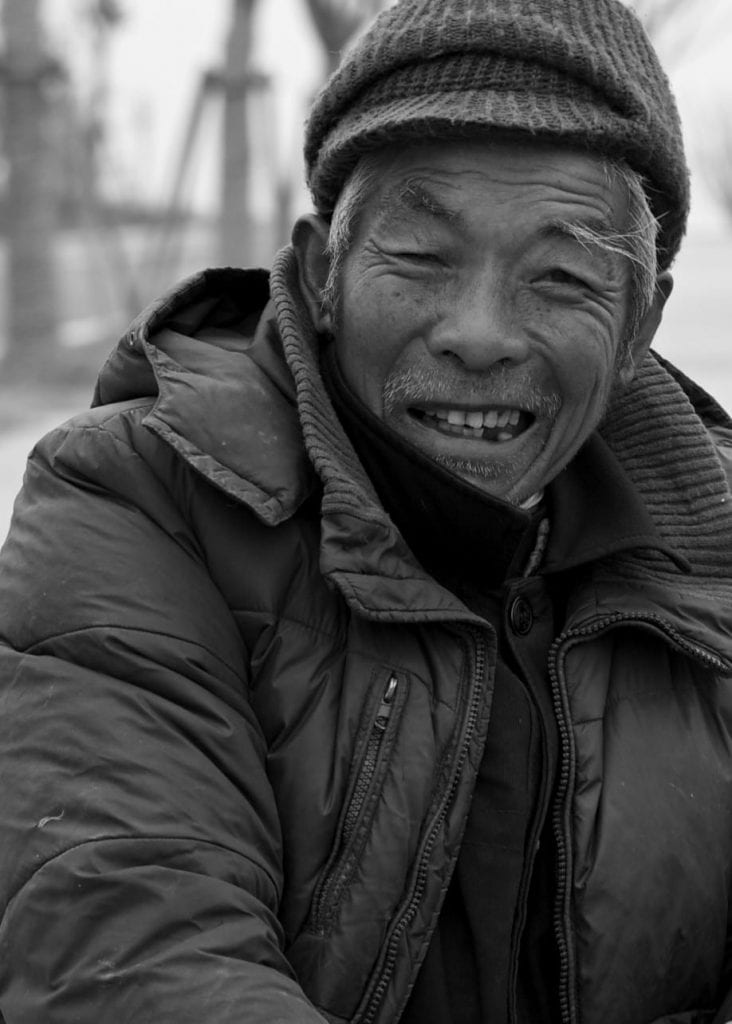by Dianna Bai

China’s newfound economic prowess since the reform and opening has been shouldered by its massive population of migrant laborers. A significant surplus of unskilled workers and a lax regulatory environment has given Chinese factories, like those in many developing countries, a competitive edge over their counterparts in the Global North. In this troubling “race to the bottom,” a great number of Chinese factories overwork and underpay their rank-and-file employees, at times subjecting them to sordid and dangerous conditions. Although brands such as Nike, Walmart and Apple have been pressured by the international media and human rights organizations to take responsibility for labor rights within their supply chains, it is difficult to separate the profits of these corporations from their habitual exploitation of the weak human rights standards and ineffective enforcement of regulations in countries like China.
For most of China’s 131 million migrant workers, leaving the village and traveling to the city to find gainful employment is the greatest opportunity as well as the most harrowing journey of their lives. The freedom and ability to leave their rural hometown are points of pride for migrant workers, yet the enormous surplus of labor in the urban areas has led to fierce competition in the market, forcing them to accept low wages, no benefits, poor working conditions, strict work regimes, and little job security. In the documentary China Blue, we see employees of the blue jean factory worked for pennies an hour, less than the minimum wage, and are often forced to work overtime – even overnight – to meet shipping deadlines. Some are so exhausted by continuous hours of labor that they fall asleep at their workstations, risking reprimand by their supervisors. Factory workers often do not get paid on time and new workers lose their first month’s paycheck as a “deposit,” a sum of money they never receive if they choose to quit. Furthermore, migrant workers have no access to healthcare or education in the city as a result of the discriminatory hukou system that binds them legally to their rural hometowns. China has a comprehensive set of labor laws including minimum wage, but local and provincial officials rarely enforce them in order to attract foreign businesses and boost their regions’ economic growth. As a result, migrant workers are exploited on dual levels, by the factories that employ them and the state that fails to protect them.
Most migrant workers do not understand their legal rights; they have no organized way to defend them. Workers have some inkling of their rights when it is most obvious. However, they lack knowledge of the comprehensive but unenforced regulations protecting them. In China Blue, the workers at the blue jean factory held a haphazard strike after their pay had been delayed for three months. There have also been some success stories of migrant workers taking legal actions against their employers. Lawyers like Zhou Litai have made triumphant careers from helping injured workers litigate with their employers for rightful compensation. Yet a string of individual cases won by workers has not changed the basic conditions of factories. Because of an authoritarian government that fears the rise of civil society, the Chinese government has not allowed independent labor unions to form in China. In developed countries, these types of organizations undergirded the labor rights movement during the industrialization process. They educated workers, negotiated with factory owners on their behalf, and organized strikes when necessary. If Chinese workers are not empowered to speak up for themselves, then who has the luxury to speak for them?
One might argue that Western consumers have the luxury to speak up for these exploited workers by demanding corporations to “clean up” their supply chains. The anti-sweatshop movement has gained great momentum in the past two decades. Due to negative media attention and pressure from NGOs, many multinational corporations that source overseas have devoted significant resources and efforts to audit the factories in their supply chains, even establishing social compliance divisions solely dedicated to this goal. Brands such as Nike at first defended the conditions in its Indonesian factories, contending that their corporation has created thousands of jobs for people who lack better opportunities. Philip Knight, the founder of Nike, pointed out: “People argued that we were taking advantage of the poor Japanese workers 20 years ago. Now Japan makes no Nikes and imports $100 million of them.” Nevertheless, Nike soon followed cues from other corporations and drafted a code of conduct for its factories.

The global movement for labor rights has brought international attention to the plight of workers in developing countries and put the issue on the table for multinational corporations. However, there is a serious inherent problem in letting corporations police themselves: a misalignment of incentives. The primary aims of private corporations are to make profits, satisfy customers, and reward shareholders. They accomplish these goals by constantly trying to improve cost efficiency, which is what attracts them to developing world factories. Apple, for example, produces its products in China because of the huge economies of scales that can be achieved there as opposed to the United States. The speed and flexibility of the Chinese manufacturing sector has drawn in companies like Apple, but it comes at the price of poorer labor conditions. Cost efficiency puts the corporations’ incentives in misalignment with social compliance divisions. Because social compliance divisions do not usually cooperate with buying departments, multinational corporations are essentially asking factories to improve the conditions for their workers while still demanding the same low prices. This disjunction has led to massive falsification of records by factory owners, undermining the integrity of the audit process. The audit profession itself is also plagued with human capital problems and instances of bribery. Corporations, in turn, have little incentive to investigate fraud so long as they can present a picture of compliance to concerned consumers. They can essentially pay lip service to the human rights movement by going along with the records presented to them. In the case of mass falsification, concerned consumers cannot even be certain that a brand which claims to buy from only factories with good labor conditions is, in fact, doing so.
Instead of simply paying attention to better audits of factories from corporations, consumers who are concerned about the labor conditions in China should also demand “responsible prices” at the manufacturing level. Currently, the prices that brands pay to factory owners in China are so low that they face the dilemma of improving labor conditions and losing business or falsifying records to comply with labor standards. Timberland, for example, will pay only $20 per shoe that it buys from a manufacturer, while selling it to the retailer for $50, which then sells it to consumers for $100. In the $80 of revenue gained after the product has been purchased from the manufacturer, there must be some room to offer the manufacturer a better price without passing on the cost to consumers. Consumer groups should scrutinize the profit structure of brands and retailers and buy goods that pay manufacturers better, so that manufacturers can pass on the generosity to their workers. This requires the buying department and the social compliance division to work together to establish an agreeable price for products that takes into account favorable labor conditions. This doesn’t necessarily have to come with a loss of profits for the brands and retailers. Favorable corporations will gain the loyalty and goodwill of a growing number of consumers who are concerned about emerging market labor conditions.
However, a consumer can only do so much on the demand side. Much of the work to be done on labor rights must come from the workers themselves. NGOs working in this field must continue educating workers on labor rights, encouraging them to organize, and advocating for the establishment of true, independent labor unions. China’s official labor union, the All-China Federation of Trade Unions (ACFTU), functions more as a peacekeeping organ between workers and management rather than a labor union truly representing the interests of workers. Although the ACFTU has considerable political clout at the national level and lobbies for labor protection laws, its chapters at various factories rarely make demands on behalf of workers. ACFTU union leaders are generally chosen by the factory management and remain beholden to the management. Chinese workers need unions with democratically elected leaders who will truly represent their interests rather than serving as a “bridge” between workers and the management. Without autonomous labor unions representing them, workers cannot bargain collectively for better wages, benefits, and working conditions. Their rights enshrined by Chinese law will go unheeded.
From one perspective, multinational corporations that choose to manufacture their products in China are giving thousands of Chinese workers opportunities they would never have had in the countryside. Although migrant workers often face laborious conditions in factories, they are earning far more than their rural counterparts and gaining more consumption power. As China becomes wealthier as a result of the economic growth driven by the export-oriented manufacturing sector, workers will naturally begin to demand more rights and better living standards. This process has taken place during the industrialization process in many former developing countries. In the meantime, however, multinational corporations are keen to exploit – for as long as they can – an inherently broken legal system and a profoundly undemocratic culture that has relegated millions of Chinese migrant workers to second-class citizenry. When China introduced in law in 2006 to give labor unions more concrete power, multinational corporations were the first to protest by implying they would move their factories elsewhere. Rather than relying on a social compliance scheme that often tolerates the falsification of records during audits, consumers should also urge corporations to offer responsible prices for manufacturers so that they can give workers better treatment without losing business. Most importantly, the Chinese and international human rights movement must continue their efforts to educate workers on labor rights and promote a political environment that will allow the formation of independent labor unions.
Dianna Bai is a Birmingham-based writer who currently writes for AL.com. Her writing has been featured on Forbes, TechCrunch, and Medium. You can find her portfolio here.
